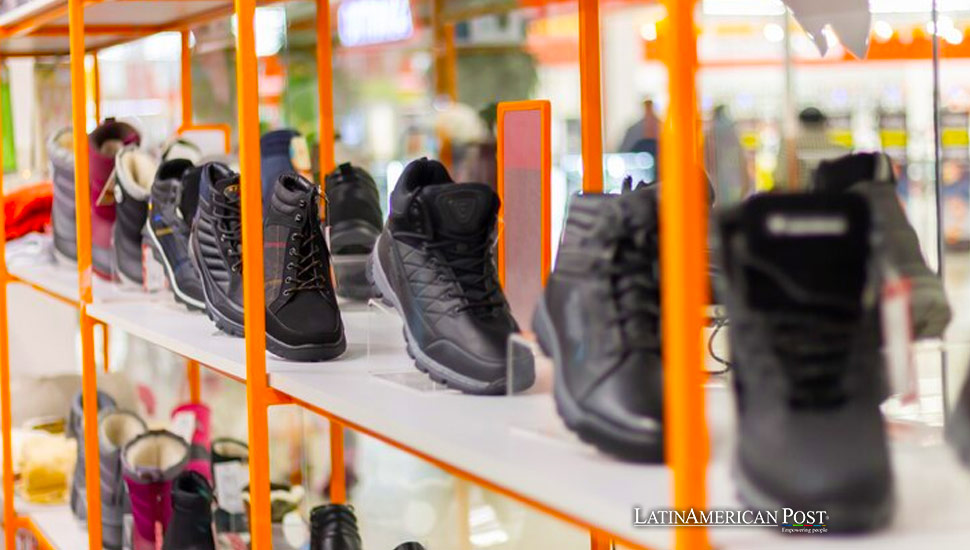Mexico Tackles Chinese Shoe Dumping: A Move to Protect Local Industry

As Chinese footwear floods the Mexican market at unnaturally low prices, the Mexican government initiates an antidumping investigation, signaling a significant shift in trade policy to safeguard national manufacturers.
In an assertive response to the surging influx of inexpensively priced Chinese footwear, the Mexican government has launched a significant antidumping investigation. This move could lead to steep tariffs on these imports, aiming to rectify market distortions and protect the domestic shoe industry. Announced this Tuesday in the Diario Oficial de la Federación, this investigation marks a critical juncture in Mexico’s trade policy, mainly as China has been the predominant source of footwear imports since 2020.
Addressing Pricing Disparities
The concern at the heart of this inquiry is the pricing strategy of imported Chinese shoes, which enter the Mexican market at prices lower than those in China’s domestic market. This pricing strategy makes it virtually impossible for Mexican producers to compete. Such underpricing has severe implications for the economic and financial indicators of Mexico’s national footwear industry.
The investigation covers a wide range of products, including synthetic boots and sandals, sports and casual sneakers with synthetic soles, and textile-based footwear. This comprehensive approach indicates the government’s commitment to addressing the issue across multiple footwear market segments.
To underscore the necessity of this investigation, the Secretaría de Economía (SE) has meticulously compiled import statistics that confirm the significant surge in Chinese footwear imports and their unusually low entry prices into Mexico. Furthermore, consultations with key industry stakeholders such as the National Chamber of the Footwear Industry and the Chamber of the Footwear Industry of the State of Guanajuato have provided invaluable insights. These consultations have revealed that imported products have been underpriced by margins of 37%, 31%, and 42% since October 2020.
Chinese Dominance in the Market
China dominates the footwear import market in Mexico, accounting for 62% of the total footwear imports from 64 countries. This dominance is a result of [specific factors that contribute to China’s dominance in global trade], which often allow Chinese products to outcompete local goods in various markets due to lower costs and aggressive pricing strategies. Vietnam, Indonesia, Brazil, Cambodia, and India follow closely behind. The dominance of Chinese imports reflects broader global trade dynamics, where Chinese products often outcompete local goods in various markets due to lower costs and aggressive pricing strategies.
The SE has warned that it will impose “definitive compensatory quotas”—essentially tariffs—on all affected products if the investigation confirms that these imports have harmed the national industry. This follows another recent government action where Mexico increased tariffs on 544 Chinese-origin products, including steel, aluminum, textiles, chemicals, and plastics, citing similar concerns about damage to national industries.
This situation in Mexico mirrors challenges faced across Latin America, where local industries struggle to compete against a flood of cheaper imports from Asia, particularly China. Countries like Brazil and Argentina have also used similar trade defense measures in recent years to protect their domestic manufacturing sectors from being overwhelmed by underpriced imports.
While these protective measures are crucial for safeguarding local industries, they are not without their complexities. They must be carefully balanced against the potential for increasing consumer costs and complicating trade relations with China, a significant economic partner. The effectiveness of tariffs and other trade barriers in fostering long-term industrial competitiveness remains a topic of debate among economists.
Commitment to Fair Competition
Nevertheless, the Mexican government’s decisive action reflects a broader regional push towards reasserting control over local markets and protecting domestic industries crucial for economic stability and job creation. By ensuring fair competition, Mexico is not only looking to defend its footwear industry but is also sending a signal about its willingness to enforce trade rules more rigorously.
Also read: How Chinese Companies Utilize Mexico to Access the U.S. Market
As this investigation unfolds, it will be a litmus test for Mexico’s ability to balance its trade relationships with major global powers while promoting sustainable domestic industrial growth. The outcomes of this antidumping inquiry could set a precedent for how emerging economies address the challenges of international trade dynamics and strive to protect their industries from unfair competitive practices. The road ahead is complex, but Mexico’s current stance clearly indicates its commitment to defending its economic sovereignty in the face of global market forces.





